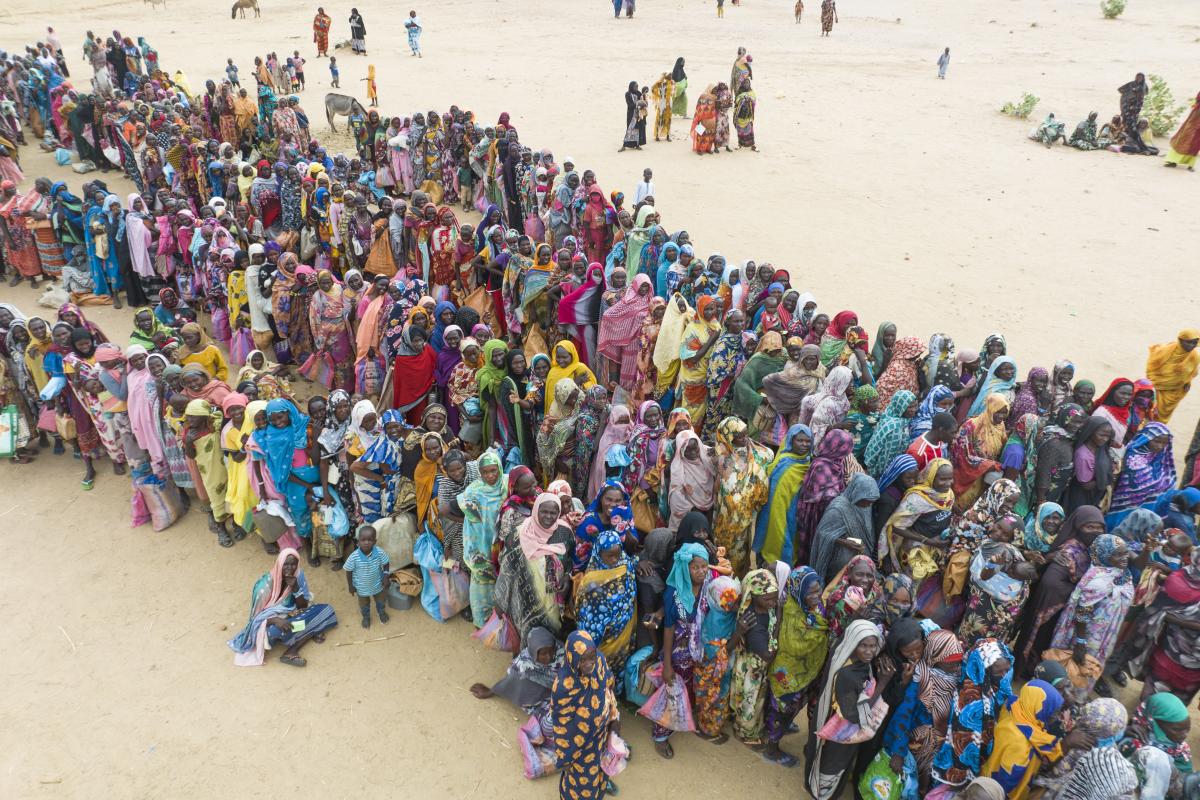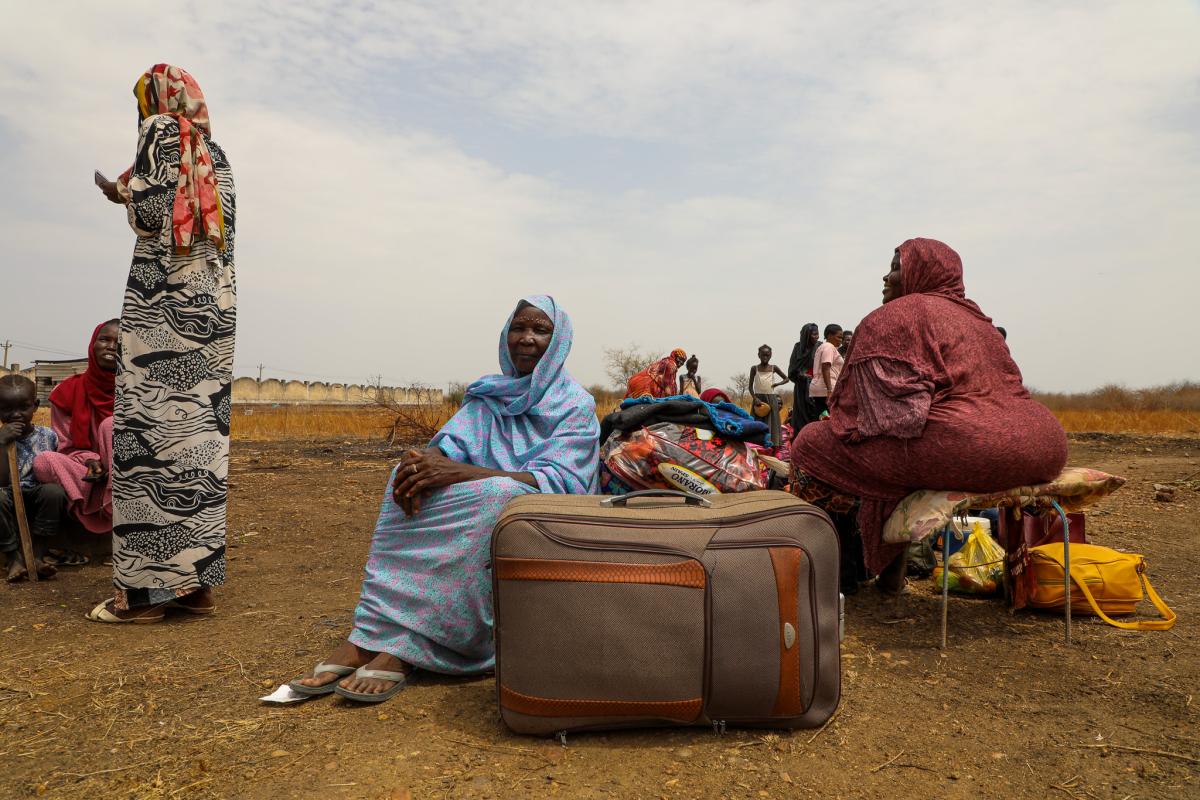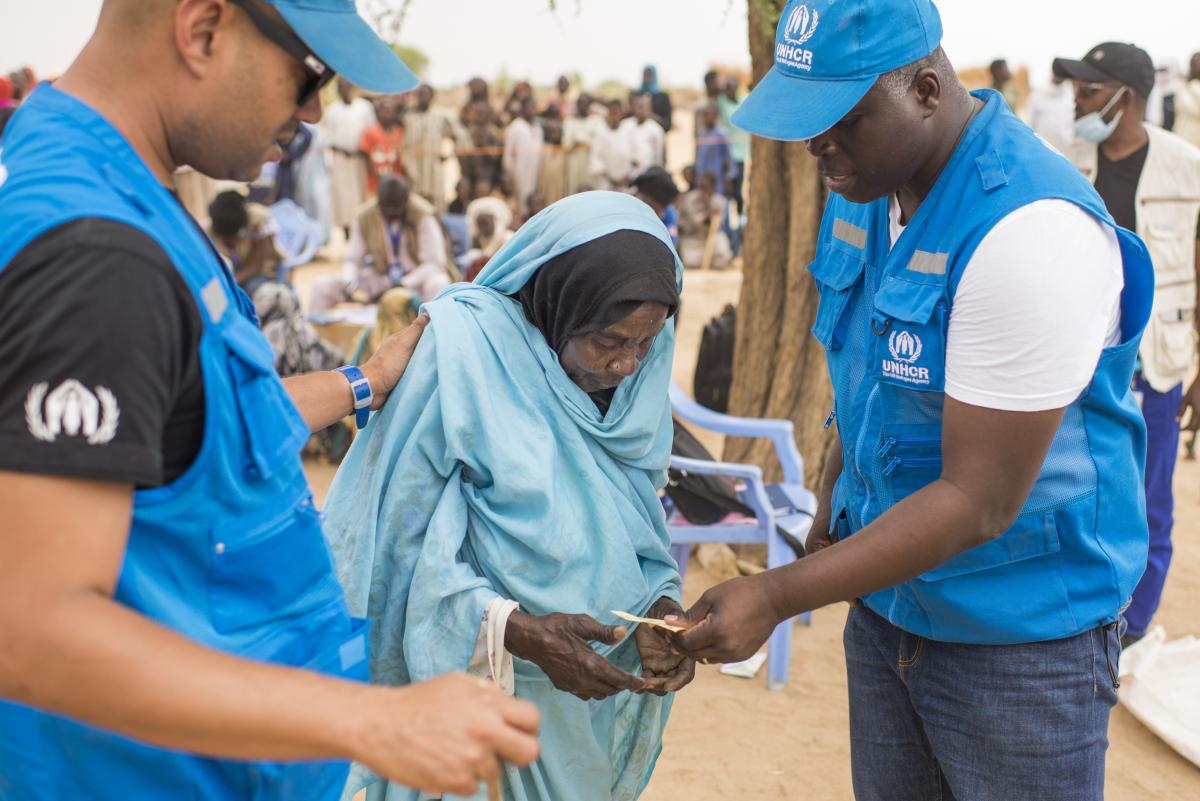Since the conflict began on April 15th, close to 5’000 people have been wounded, and the death toll is now exceeding 600 people. While thousands have already fled to neighbouring countries, the number of people being forced to flee might continue to increase dramatically if no solution for a return to peace is found.
Over 100’000 people displaced in neighboring countries
As the country experienced a full month of brutal fighting throughout its territory, the human toll of the conflict is tragically increasing. Facing such an uncertain situation, more and more people have no other choice than to flee to safety.

114’000 people from Sudan have thus fled to reach safety as of 11 May in neighbouring countries as Chad, Central African Republic, Egypt, Ethiopia, and South Sudan. In addition, 46’000 South Sudanese refugees who had found safety in Sudan after fleeing their country have now decided to return, even if the situation there is far from ideal and safe. 3.7 million internally displaced persons and around 1 million refugees that were hosted in the country prior to the start of the conflict are now facing a grim situation, as they witness the second largest refugee-hosting country on the African continent descend into chaos. Raouf Mazou, UNHCR’s Assistant High Commissioner for Operations has emphasized the increased need for support in the region, and warned of the challenges:
The humanitarian situation in and around Sudan is tragic - there are food, water and fuel shortages, limited access to transport, communications and electricity, and skyrocketing prices of basic items, UNHCR and partners have emergency teams in place and are assisting authorities with technical support, registering arrivals, carrying out protection monitoring and strengthening reception to ensure urgent needs are met. This is just a start. More help is urgently needed.

“I lost my home, my husband and my country in the blink of an eye.”
The humanitarian toll of the conflict is disastrous, as an increasing number of testimonies prove it. When fighting erupted in Sudan’s capital, Khartoum, 25-year-old Arafa was at home alone with her two young children. Panicked by the sounds of shooting and warplanes flying overhead, she tried calling her husband at work but could not reach him. The next day, she woke up to calls from her husband’s friends, informing her that the latter had been shot dead.
Fearing for her life and that of her children, Arafa resolved to leave the capital to reach safety. After a long journey, she managed to reach Egypt with her family.
I was scared, tired and without hope. The road was difficult, and the continued sound of gunfire was deafening. I did not think we would make it. I spent 80 hours without food or water. I was holding my children in my arms, fearing the war, the journey to asylum and the long road ahead.

When she arrived in Cairo, in a square of the unfamiliar city with nowhere else to go, she spent the night on the street. The next day, a South Sudanese woman passing by advised her to go to the office of UNHCR and register with them, from which she now receives assistance. While this gives her some relief, her future remains far from certain:
I can't believe I am here in Egypt now, but I am still afraid of everything. I need help. I am afraid of the future. I lost my home, my husband, and my country in the blink of an eye. I don't want to lose my children too; I want them to be safe.
Humanitarian support is urgently needed
As neighbouring countries keep on receiving more and more refugees from Sudan, the needs are growing swiftly. In Chad, the world’s second poorest country according to the Human Development Index (HDI), over 28’000 refugees from Sudan arrived in the past weeks, joining the 575’000 refugees already hosted in the country. On top of that, about 380’000 people are internally displaced in Chad. The situations in South Sudan, the CAR, and Ethiopia are similar- and humanitarian needs are only growing.
As the crisis deepens, refugees and displaced people in the region need urgent support to ensure their survival.